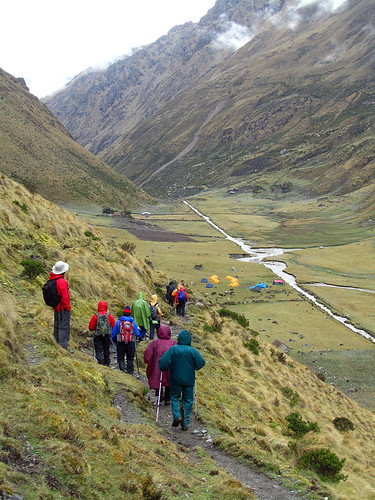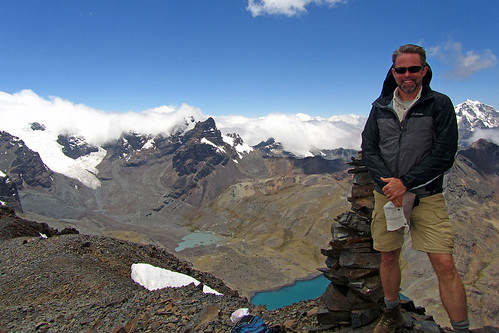You can improve the quality of your daily life by learning to focus your attention and choosing to filter your experiences through a lens of positivity. But while it might be simple to find happiness in a single day, it can be much more difficult to link a series of days into a meaningful whole. Still, just as we must be active agents in creating our own happiness, we must also take an active role to create meaning in our lives.
“Creating meaning involves bringing order to the contents of the mind by integrating one’s actions into a unified flow experience,” writes Mihály Csíkszentmihályi in Flow: The Psychology of Optimal Experience. To give meaning to life, to achieve this “unified flow experience”, you need a purpose — an overall goal around which your lesser goals are clustered.
The path to purpose is different for each of us. Exercises like those I’ve shared over the past month — the big rocks, the three questions, and the lifeline — can help you identify your personal purpose, but often this process requires many years of experience and soul-searching. Don’t feel bad if you haven’t found your purpose.
And be aware that it takes more than cultivating purpose to make meaning out of life. To make meaning, you must also forge resolve. You must take your goals seriously. If you’re not willing to accept the consequences of the goals you set, or to put in the effort required to achieve them, those goals become meaningless.
Curiously, it can often be easier to find meaning and purpose by limiting your options. The more choices we have, the more difficult it is to maintain our resolve. “Commitment to a goal and to the rules it entails is much easier when the choices are few and clear,” notes Csíkszentmihályi. “When we can imagine only few opportunities and few possibilities, it is relatively easy to achieve harmony. Desires are simple, choices are clear. There is little room for conflict and no need to compromise.”
Because life is complex (and becoming more so every day), it’s vital to keep your psychic energy focused on the things that matter most. Exercising personal restraint and preferring simplicity can help you stay glued to your purpose, on your goals both big and small. Restraint and simplicity reduce the possibility of distraction.
But restraint and simplicity aren’t enough. When life gets busy and you feel overwhelmed, you must do more than just simplify your environment. At these times, action and intensity become your allies. “Harmony is restored to conscious indirectly — not by facing up to contradictions and trying to resolve conflicting goals and desires, but by pursuing chosen goals with such intensity that all competition is preempted,” writes Csíkszentmihályi. “Action helps create inner order.”
Action cures fear; apparently, it also imparts purpose.
The final piece to the making of meaning is self-knowledge, the process by which you sort through conflicting choices. Based on your personal history, preferences, and passions, you must filter the available options to select the goals that truly reflect who you are and what you mean to the world.
Ultimately, it’s up to each of us to discover our life’s purpose though a combination of simplification, action, and self-reflection, be being true to who we are and what we believe, and be setting goals we find worthy of pursuing for their own sake. Short-term goals provide pleasure and enjoyment. By stringing a series of short-term goals together, life takes on form and structure. We make meaning and purpose.
Philosopher Friedrich Nietzsche wrote in Twilight of the Idols, “He who has a why to live for can bear almost any how.” Later in the year, our discussion of Financial Independence will explore this notion in depth.
Before we can talk about financial freedom, however, we have more philosophy to cover. Over the next few months, the next portion of our journey will travel the trail of personal freedom. We’ll learn more about creating a life you love so that you die without regrets, so that you don’t reach your final day on earth feeling like something is missing.






